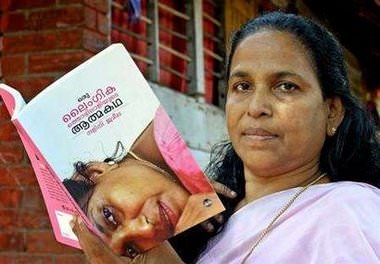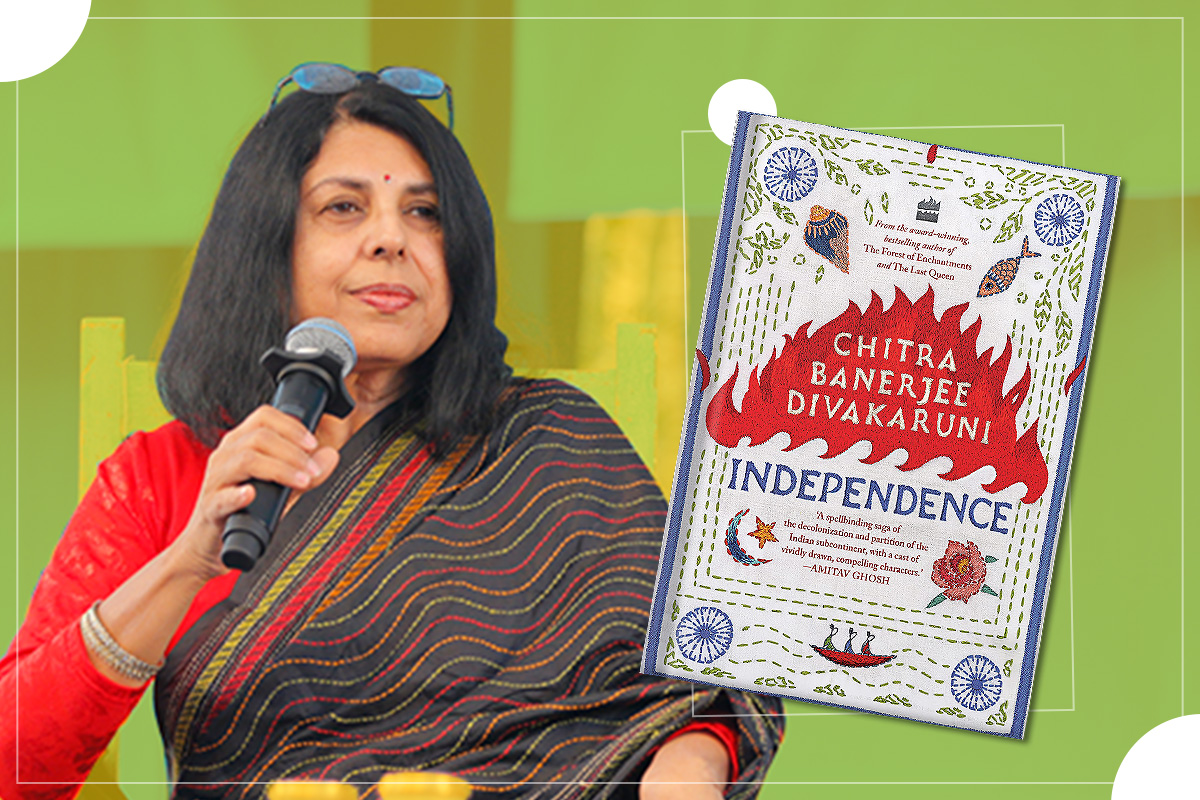 Nalini Jameela lays out an interesting and powerful narration of the patriarchal oppression faced by women through her own experience as a middle class Ezhava woman who became a sex worker because of poverty. Born into a middle class family near Amballoor, Ernakulum, Nalini did not have the privilege to gain elementary education and was pulled out of school in class three.
Nalini Jameela lays out an interesting and powerful narration of the patriarchal oppression faced by women through her own experience as a middle class Ezhava woman who became a sex worker because of poverty. Born into a middle class family near Amballoor, Ernakulum, Nalini did not have the privilege to gain elementary education and was pulled out of school in class three.
Due to the extreme poverty caused by the loss of her mother’s job, she started working at the age of nine in a clay mine near her house. She faced sexual harassment at work multiple times. At the age of eighteen, she was thrown out of her house by her violent patriarchal father. She got married unceremoniously to a co-worker who had taken her in and lost him to cancer after the birth of her children. She was compelled to take up sex work in order to provide for her children with no support from her in-laws and conjugal family.
The Domestic Sphere – A Violent Patriarchal Sphere
Nalini’s account is a fierce presentation of the domestic sphere as violently patriarchal. At different stages of her life, she observed and reflected upon the violence that women are subjected to in the domestic sphere. Her mother’s and her own experience revealed contradictions embedded within the domestic sphere quite clearly to Nalini.
In Nalini’s family, patriarchal power rested in the hands of her father who was an ex-army man and a Communist. Her father’s association with the Communist Party led to her mother losing her job at her spinning mill. Not only did this make Nalini’s mother and ‘her’ kids economically dependent on her husband, but it also made her mother lose her confidence in questioning his authority. This taught Nalini the relevance of economic independence at an early age and also made her develop a strong sense of self-respect. Not only did she start working at the age of nine but also stood up for herself and her daughter when she lived with Koyakka (her second husband).
Nalini’s account is a fierce presentation of the domestic sphere as violently patriarchal.
Further, Nalini stood by her brother’s decision of marrying someone of his own choice. This got thrown out of her house by her father for expressing her view, and she did not even receive any support from her brother either. In his entire life, Nalini’s father never stood up for her mother and repeatedly beat her in rage. His authority was never questioned and not so ironically, was only passed onto her brother.
Through this book, Nalini reveals the ways through which even women become invested in patriarchal ideology. For instance, Nalini’s father was influenced by his sister-in-law to abuse his wife. Further, when Nalini’s brother became the next patriarchal head of the house, his wife began to scrutinise the actions and movements of Nalini’s mother. This is not only restricted her movement but led to lack of privacy.
Nalini’s own observation and experience revealed that patriarchy makes the domestic sphere violent towards women, wherein patriarchal ideology becomes etched within the everyday lives of women. However, she tried to question male authority in her own life.
Morality As A Tool For Obscuring Patriarchal Oppression
Nalini ridiculed the various moral opinions attached to sex work. Through her work, she condemned the constant attempts to shield the internal contradictions of a patriarchal society that uses tropes of morality. She suggested that the people who compel women to take up sex work are the first to accuse them of being immoral.
the people who compel women to take up sex work are the first to accuse them of being immoral.
Men as Clients
She explained that the attitude of clients have not changed over the years.
“There’s no change in their attitude: “I’m a respectable individual; you are a whore.” They never arrive at the realisation that they are clients.”
She pointed out that men (her clients) not only consider themselves as morally right to demand sex from an unknown woman in return of money, but condemn sex work as immoral. The sex worker is disrespectfully viewed as a “whore” (which projects women as mere tools for sex) by her clients.
Nalini had her first experience as a sex worker with a police officer (who she described as an extremely handsome man). The next day, she was picked up and brutally beaten by the police. She highlighted that the same group of people that ask for sexual services are the ones who punish them for being sex workers. In addition to this, she pointed out those men who claim themselves to be patriarchal heads – the harbingers of morality and protectors of women in the family – are the ones who come to her for sexual advice and services.
Also Read: Why Is Sex Work Not Seen As Work?
Co-Workers, Sex Work and Violence
Nalini shared the story of Sabira, a co-worker who spoke at a seminar in front of legal experts and Presidents of the State and National Women’s Commission, regarding the working conditions of sex workers and the need to fight for their rights. A few days later, she was picked, beaten and tortured the whole night by the police. She died from the wounds inflicted on her.
Nalini also mentioned the stories of two co-workers who committed suicide due to feuds with their families. This and many other episodes that exemplified the violence faced by her and her co workers are etched throughout her experience. She fights for the cause of sex workers’ human rights and has raised her voiced multiple times against patriarchal oppression and state negligence against the lives of workers.
Therefore, her account shows us that in order to build a feminist analysis on the experience of a female sex worker, it is imperative to critique the violence embedded in patriarchal structures and reflect upon one’s investment in it. Nalini not only questions male authority but also reveals the internal contradictions embedded in spheres that affect the lives of women. Therefore, any political organization working with rehabilitation or sex workers rights must challenge violent patriarchal oppression every woman faces in their everyday lives.
Featured Image Credit: Naxal Revolution
About the author(s)
I am still confused about calling myself a radical feminist. A sluggish writer. I am more interested in reading about politics, colonial history, and stories of resistance to dominant power structures. I believe that patriarchy screwed up everyone’s life. I have an undying love for western Marxist and feminist theories.





Well, it’s a very good first article, Ms Deeksha. Hope to see more from you on this platform.
Would rather focus on poverty, empowerment of women (and it’s relation to patriarchy) and economic independence rather than ‘patriarchy ideology’.